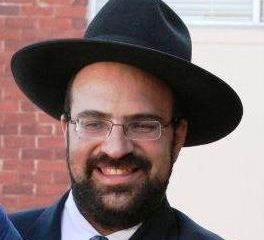
Parshot/Festivals
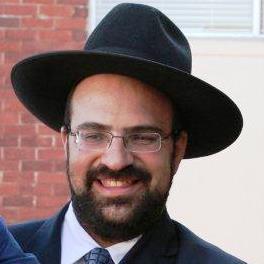
Rabbi Bloch shares his thoughts on Rosh Hashanah
RABBI SHMUEL BLOCH
Hebrew is an extraordinary language.
Contained within Hebrew are the deepest secrets of the universe and the building blocks that Hashem used in making this world. Hebrew is termed by our Sages “Loshen Hakodesh”, the holy language. The language of Hebrew is unparalleled in how it describes our reality. It is unique in that it is the tool that allows us to transcend the physicality of this world and enter the spiritual dimension.
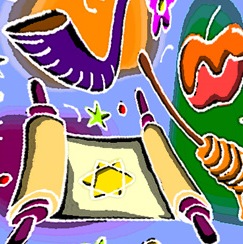 It is precisely because Hebrew is so rich and deep that a tremendous problem arises when rendering from Hebrew to English.
It is precisely because Hebrew is so rich and deep that a tremendous problem arises when rendering from Hebrew to English.
During the process of translation, one loses most of the inner meaning and deep subtleties that exist within a Hebrew word.
Only a fraction of the original understanding of the word gets conveyed when translated in English.
Rosh Hashanah is upon us and these two days are saturated with opportunity “to do Teshuva”. To understand the exact process that Teshuva entails, requires that we define and clarify the word correctly.
Teshuva is usually translated as “repentance” or “penitence”. While it is true that when performing the mitzvah of Teshuva there definitely is an aspect of repenting, Teshuva defined and understood correctly is infinitely more than that.
Familiarity sets in and you know where you are
The word Teshuva originates from the Hebrew word “Shav” which means to return or to come back. It is axiomatic that you cannot return to a place if you have never been there before. You can only return to a place if you have visited there on a previous occasion. Since you were there, you know the area, you are familiar with the landmarks, and you are acquainted with the people who live there.
 Even though many years may pass till you go there again, when you do, you do not feel like a stranger. Familiarity sets in and you know where you are. Returning allows you to and relive where you once were before and you can re-experience all the delights and pleasures of this place once again.
Even though many years may pass till you go there again, when you do, you do not feel like a stranger. Familiarity sets in and you know where you are. Returning allows you to and relive where you once were before and you can re-experience all the delights and pleasures of this place once again.
How do we understand Teshuva/Return from a spiritual perspective?
Imagine a scenario where a person receives a family heirloom. This piece of jewellery has been passed down for countless generations and is made of sterling silver. It is priceless and is a real treasure. However over the years much grime has accumulated, the silver has tarnished, it is dirty and unwearable.
Does one leave this unique and special piece in this state? Of course not!
One intrinsically knows that this heirloom is worth so much. All one needs to do is begin a process of returning it to its previous glory. Thus, one delicately starts to polish using a powerful cleaning agent and as one continues this cleaning routine, a marvellous miracle starts taking place before your very eyes. The grime melts away, the silver begins to shine and after a while, the heirloom is restored to its former glory and is sparkling and glittering.
The only reason you invested so much time and effort in cleaning this ornament is because right from the outset you knew its intrinsic value and worth. All you needed to do was return it to its original state.
If this is true concerning a precious necklace, how much more so our remarkable soul.
We cannot begin to fathom the significance and beauty of being Jewish. It is our “Yiddishe Neshoma”, our exceptional and amazing soul that powers our existence and allows us to develop our eternal and intimate relationship with Hashem
Spiritual rust sullies our souls
However, due to ignorance or a lack of knowledge, we perform actions that are not in accordance with what Hashem wants from us. This spiritual rust sullies our soul, inhibits our potential and impedes our relationship with Hashem. Our soul, our G-dly spark, our essence is dirty, soiled and stained.
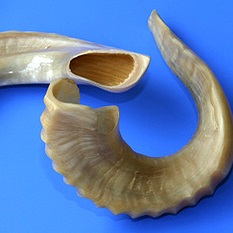 Yet it is critical to know that this spiritual grime is only on the exterior. Our Neshoma, our G-dly soul is perfect and pure in its essence.
Yet it is critical to know that this spiritual grime is only on the exterior. Our Neshoma, our G-dly soul is perfect and pure in its essence.
We declare this every day as part of the Shacharis (morning) prayers.
“My G-d, the soul that You placed within me is pure. You created it, You fashioned it, You breathed it into me, you safeguard it within me, and You will eventually take it from me and restore it to me in Time to come” (Siddur)
Just as the owner of the heirloom knows its intrinsic worth despite the filth that surrounds it, so too we need to realise how wonderful it is to be alive and that our soul which is given to us by Hashem is of inestimable value.
However, just as the owner of the heirloom realises that it is imperative to restore it to its former glory, so to we must utilize the gift of Teshuva, which erases instantly all spiritual muck which has soiled our soul, and miraculously, our soul returns to its pristine, perfect form.
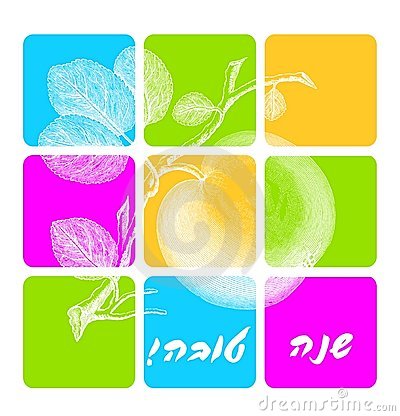 Suddenly, amazingly, we have returned to where we need to be.
Suddenly, amazingly, we have returned to where we need to be.
We feel extremely comfortable here because we intuitively know we are home.
The soul is back to being primary and the body secondary.
The soul is unspoiled, immaculate and we feel it. On Rosh Hashanah our relationship with Hashem is vibrant, pulsating, and eternal.
We have returned to our true selves. Teshuva allows us to return, to be in touch with who we really are and causes the “real me” the soul, the Jew to take centre stage in our life.
It is no wonder we feel so happy on Rosh Hashanah. That heirloom when polished is glowing and after doing Teshuva so are we.
Rosh Hashanah is limitless in terms of what we want to achieve and where we want to go. Perform the mitzvah of Teshuva and be amazed at how great you really can be.
Wishing you a year inundated and filled with Hashem’s blessings.
Kesivah V’Chasimah Tovah,
Rabbi Shmuel Bloch
Previous DELVING DEEPER writes by Rabbi Bloch





